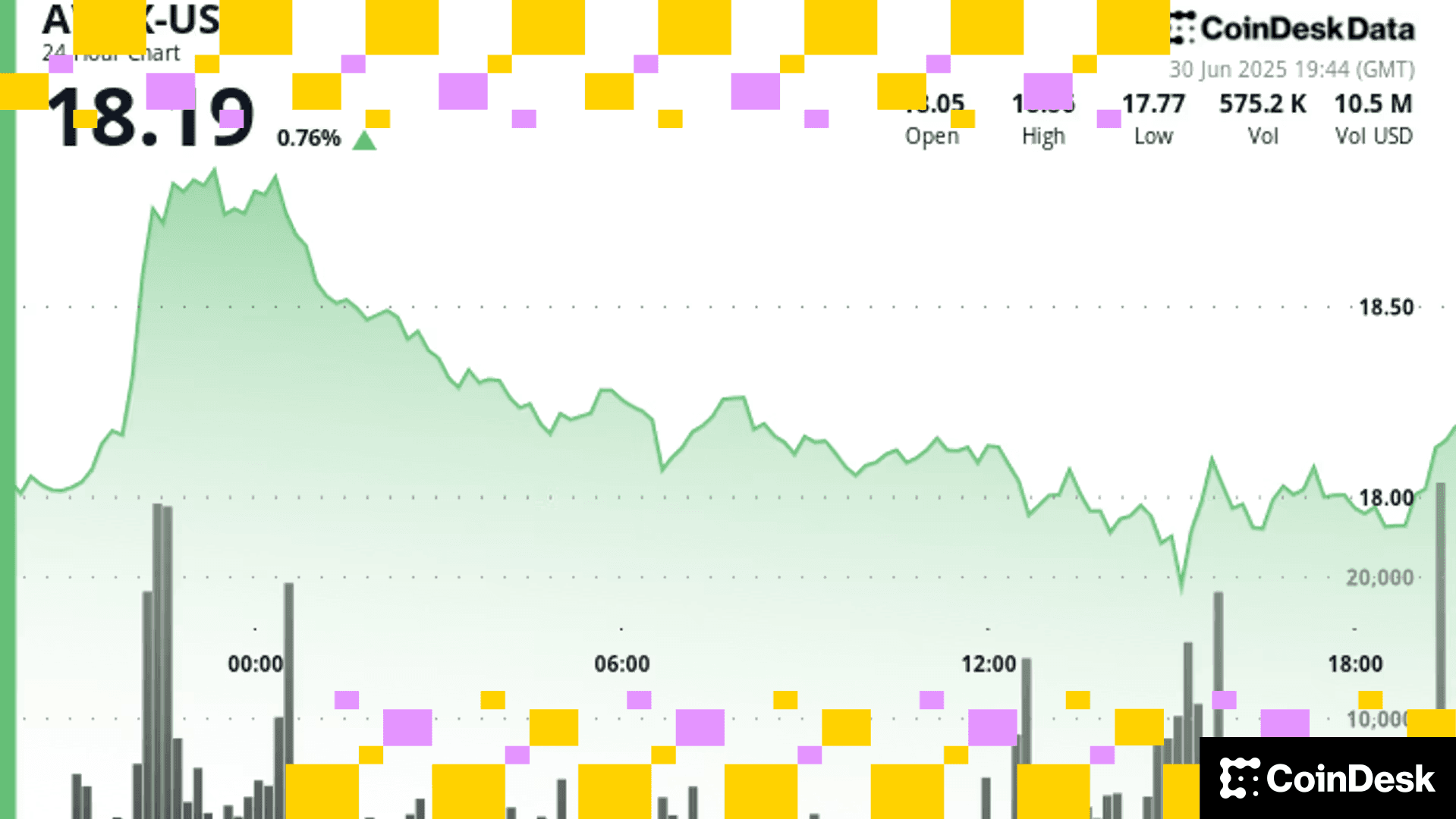Bitcoin ETF Approval Comparable to 'Naked Emperor’s New Clothes,’ ECB Officials Say
The U.S. SEC’s approval of multiple spot ETFs and the billions of dollars that have poured in since don't make Bitcoin a good investment or a better means of payment, the central bankers said in a blog post.

- The approval of spot bitcoin ETFs and the resulting price rally are not proof that the cryptocurrency is a good investment, two officials at the European Central Bank said in a blog post.
- Bitcoin’s price may rise in the short term, but there is no “fair value” from which serious forecasts can be made, they wrote.
“Why is this dead cat bouncing so high?”
So asked two officials at the European Central Bank (ECB) about the crypto market’s most recent rally – powered by the approval of bitcoin
The U.S. securities watchdog's approval of multiple funds and the billions of dollars that have poured in since doesn’t change the fact that bitcoin is an all-around lousy investment and clunky means of payment, ECB Director General for Market Infrastructure and Payments Ulrich Bindseil and Advisor Jürgen Schaaf wrote in a Thursday blog post.
Read More: ECB Officials' Full Statement on Bitcoin's Failed Promise and ETFs
“We disagree with both claims and reiterate that the fair value of bitcoin is still zero,” the two officials doubled down on the central bank’s longstanding position that bitcoin is bad, calling the ETF approval for the cryptocurrency “the naked emperor’s new clothes.”
Last year, the European Union became the first major jurisdiction to implement a comprehensive regulatory framework for crypto assets and related service providers. Meanwhile, the ECB has been heads down on building and promoting a digital euro – a trusty central bank-issued currency that could offer a secure alternative to rogue private crypto.
Apart from stating bitcoin’s usual vices, such as high volatility, cost, slow transactions, and high energy use in mining, the central bankers detailed three factors fuelling the current rally.
“The ongoing manipulation of the ‘price’ in an unregulated market without oversight and without fair value, the growing demand for the ‘currency of crime,’ and shortcomings in the authorities’ judgments and measures” will drive the price in the short term, but “there is no fair value from which serious forecasts can be derived,” Bindseil and Schaaf wrote.
Authorities must stay vigilant to protect society when the house of cards eventually collapses, the two warned.
“This job has not been done yet,” they said.
More For You
Exchange Review - March 2025

CoinDesk Data's monthly Exchange Review captures the key developments within the cryptocurrency exchange market. The report includes analyses that relate to exchange volumes, crypto derivatives trading, market segmentation by fees, fiat trading, and more.
What to know:
Trading activity softened in March as market uncertainty grew amid escalating tariff tensions between the U.S. and global trading partners. Centralized exchanges recorded their lowest combined trading volume since October, declining 6.24% to $6.79tn. This marked the third consecutive monthly decline across both market segments, with spot trading volume falling 14.1% to $1.98tn and derivatives trading slipping 2.56% to $4.81tn.
- Trading Volumes Decline for Third Consecutive Month: Combined spot and derivatives trading volume on centralized exchanges fell by 6.24% to $6.79tn in March 2025, reaching the lowest level since October. Both spot and derivatives markets recorded their third consecutive monthly decline, falling 14.1% and 2.56% to $1.98tn and $4.81tn respectively.
- Institutional Crypto Trading Volume on CME Falls 23.5%: In March, total derivatives trading volume on the CME exchange fell by 23.5% to $175bn, the lowest monthly volume since October 2024. CME's market share among derivatives exchanges dropped from 4.63% to 3.64%, suggesting declining institutional interest amid current macroeconomic conditions.
- Bybit Spot Market Share Slides in March: Spot trading volume on Bybit fell by 52.1% to $81.1bn in March, coinciding with decreased trading activity following the hack of the exchange's cold wallets in February. Bybit's spot market share dropped from 7.35% to 4.10%, its lowest since July 2023.
More For You











